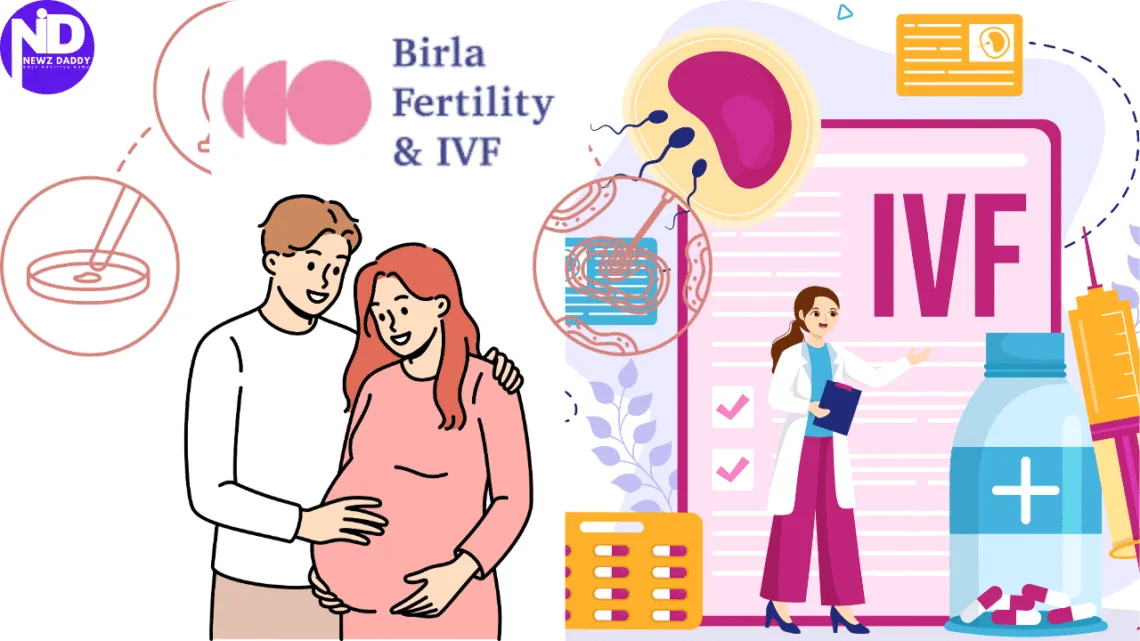Fertility Journey And The Role Of Hidden Health Factors
Newz Daddy Healthcare Updates
Learn How Stress, Emotions, Food, Sleep, and Daily Lifestyle Habits Shape Your Fertility Journey.
Dr Vivek Kakkad, Fertility Specialist at Birla Fertility & IVF, Ahmedabad, says that “when we think of infertility, we frequently picture something biological, like an egg, a sperm, or the place where life begins. But the truth is that the fertility journey isn’t often that easy. We often meet couples with perfectly healthy eggs and sperm who nonetheless have trouble getting pregnant. That’s because the infertility journey isn’t just in the body; it’s also in the mind, in the way we live our lives, and in the world around us.”
The Mind’s Stress and Weight
Stress is one of the most important things we forget about. Stress can mess with hormone signalling, make ovulation happen later, and lower sperm production. But the stress on your emotions doesn’t end there. When couples try and fail for months or years, the pressure builds. Without emotional support, intimacy diminishes, making it tougher to make decisions, and even the greatest medical programs may not work.
Also Read:
Doctors say a failed cycle in fertility treatment is a step toward success
Miracles in Motion: Birla Fertility & IVF Branches Out to Ahmedabad and Surat
Experts suggest that stress hormones like cortisol mess with hormones that help you have babies. A lot of couples get stuck in a cycle: infertility generates stress, which makes them less fertile. Meditation, counselling, and relationship therapy are among the things that can help break down this invisible wall. Taking pauses, finding hobbies, or even talking about your feelings with family can make a great difference in this journey to getting pregnant.
Toxins in your food, your lifestyle, and your home
Weight, nutrition, and sleep can all have a big effect on the fertility journey. For instance, being too thin or too heavy can change the amounts of hormones that affect ovulation or the health of sperm. You can see how modern living makes biology more complicated when you add in exposure to common pollutants like pesticides, plastics, and even cosmetics.
Many doctors say that a bad diet and not getting enough exercise are two of the main causes of infertility that people don’t talk about. Eating junk food, drinking too much alcohol, and not getting enough sleep can throw off the body’s natural rhythm. Eating full grains, fruits, vegetables, nuts, seafood, and other foods, on the other hand, is good for reproductive health. Even small things like cutting back on screen time before bed and going for walks on a regular basis can help with the fertility journey. New studies also reveal that even small amounts of pollutants from plastics or pesticides can throw off hormone balance. This is a reminder that the environment we live in has a big impact on our fertility journey.
What Medicine Might Not See
It’s not always what we see on a scan or test result; sometimes it’s something we can’t see. Mild chronic inflammation, small uterine infections, and autoimmune reactions may not always be immediately detectable; however, they can affect implantation or early development. Researchers are also looking into even little problems, such as endometrial thickness or abnormalities in the uterine flora, to see how they can affect unsuccessful cycles.
For instance, a woman could have normal test results yet still have trouble getting pregnant over and over. Recent research shows that the “microbiome” in the uterus, which is the small group of bacteria inside, can be quite important. If this balance is off, implantation might not go as planned. Low-grade inflammation or immunological reactions that go undiagnosed can also make it hard for embryos to thrive. Medicine is only now starting to look into these areas in depth, which is why personalised treatment is so vital for every fertility journey.
It’s Not Always “Unexplained.”
“Unexplained infertility” usually only implies “not yet understood.” It reminds us that we are still learning and that treatment should include more than simply drugs or procedures. To really care about someone’s fertility, you have to listen to more than just the test results. This journey isn’t just about eggs and sperm; it’s about everything that makes you who you are.
Couples often hear the term “unexplained infertility,” which can make them feel despondent and angry. But in reality, it usually means that science hasn’t figured out what caused it yet. Emotional health, stress management, and lifestyle choices can be just as important as medical care. Some couples have said that they have been successful after working on relaxation, nutrition, or alternative therapies together with medical help. This indicates that infertility is not just a medical problem; it is also a test of patience, strength, and self-care.
Also Read:
Dr. Limbachiya’s Minimally Invasive Surgical Techniques Inspire Hope Worldwide






